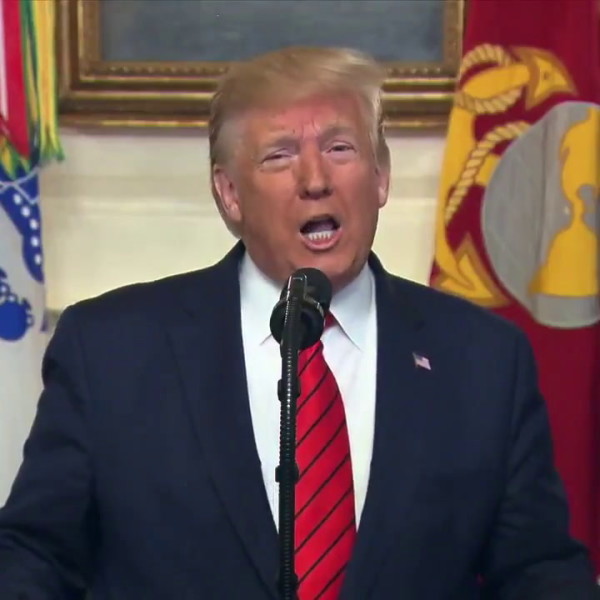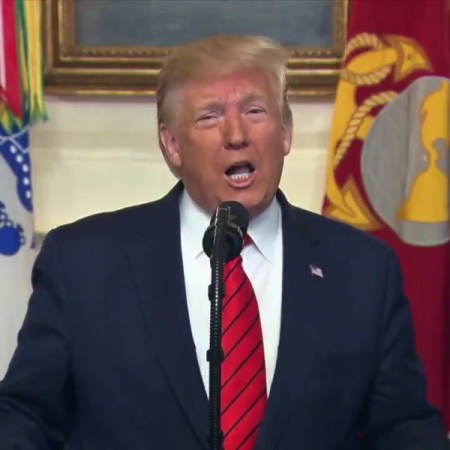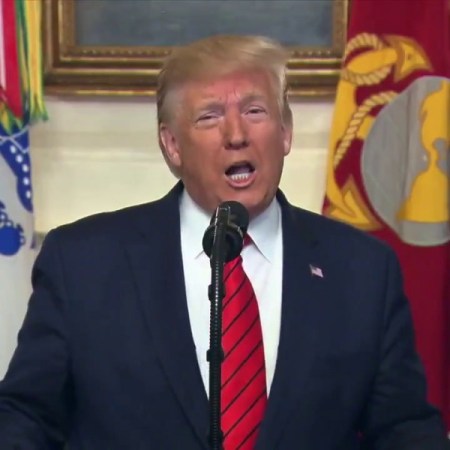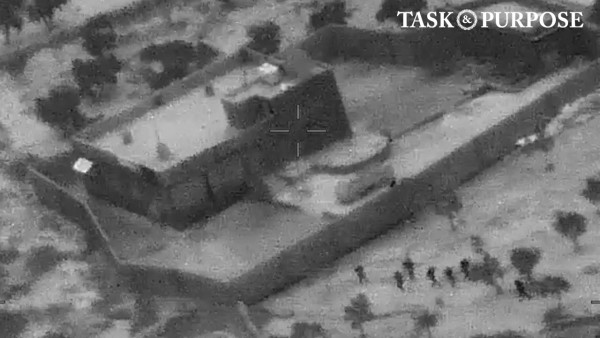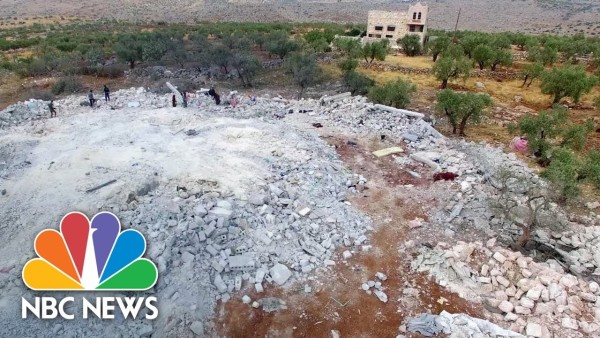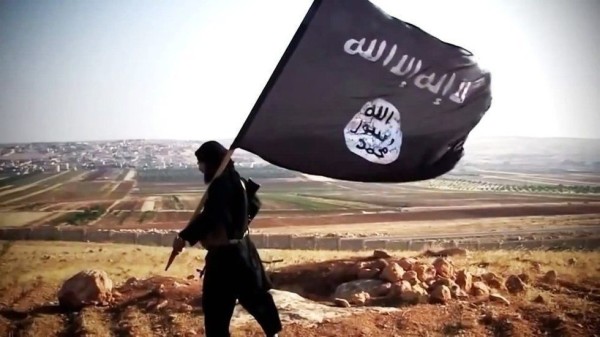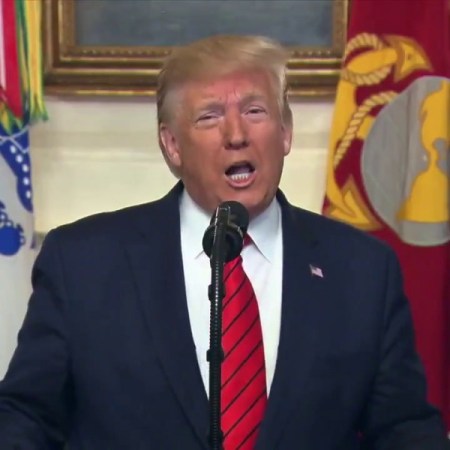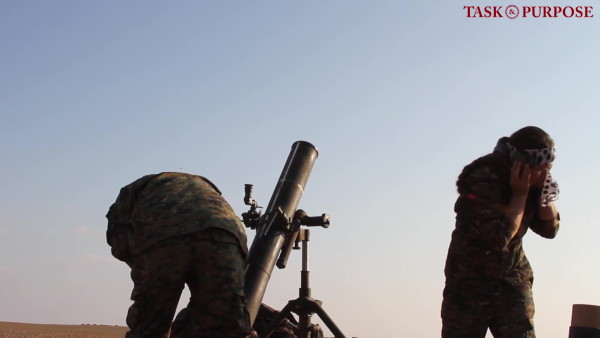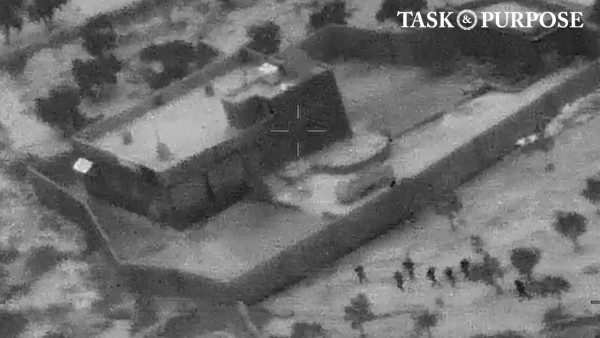WASHINGTON/MOSCOW (Reuters) – The United States wants to bolster a coalition fighting ISIS in northeastern Syria, a senior State Department official said on Monday, after the leader of the jihadi movement, Abu Bakr al-Baghdadi, was killed in a weekend operation.
World leaders welcomed his death, but they and security experts warned that the group, which carried out atrocities against religious minorities and horrified most Muslims, remained a security threat in Syria and beyond.
The official said that President Donald Trump, by announcing the withdrawal of U.S. forces from northern Syria on Oct. 6, did not suggest that Washington was abandoning the fight against ISIS.
“There was never an idea that we would abandon the mission of going after ISIS. … This is a major effort that is continuing,” the official told reporters.
Foreign ministers will meet in Washington on Nov. 14 to discuss the mission.
“The United States is determined to prevent a resurgence of ISIS in Syria and Iraq and continues to work with the Global Coalition to destroy ISIS remnants and thwart its global ambitions,” the U.S. State Department said in a statement.
It said the Washington meeting’s discussions would have a “particular focus on recent developments in northeast Syria and their relationship to stability and security of the region.”
Trump has softened his pullout plans for Syria after a backlash from Congress, including from fellow Republicans, who say he enabled a long-threatened Turkish incursion on Oct. 9 against Kurdish forces in Syria who had been America’s top allies in the battle against ISIS since 2014.
U.S. special forces carried out the Syrian operation in which Baghdadi killed himself and three of his children by detonating a suicide vest when he was cornered in a tunnel.
Trump said on Monday he may declassify and release part of the video taken on Saturday of the raid. The video is believed to include aerial footage and possibly footage from cameras mounted on the soldiers who stormed Baghdadi’s compound.
Trump said on Sunday that Baghdadi had died “whimpering and crying” in a raid that fulfilled the president’s top national security goal.
The United States has given the remains of Baghdadi a burial at sea and afforded him religious rites according to Islamic custom, three officials told Reuters.
‘Lone wolf’ threat
Kremlin spokesman Dmitry Peskov declined to say if the United States had told Russia about the operation in advance. Trump, in announcing the operation, said Russia “treated us great” by opening up airspace it controlled for the raid.
Peskov added: “If this information is confirmed, we can talk about a serious contribution by the president of the United States to the fight against international terrorism.”
French President Emmanuel Macron said Baghdadi’s death was a major blow against Islamic State, but “the fight continues to finally defeat this terrorist organization”.
British Prime Minister Boris Johnson said: “We will work with our coalition partners to bring an end to the murderous, barbaric activities of Daesh (ISIS) once and for all.”
In Southeast Asia, an important focus for ISIS, officials said security forces were preparing for a long battle to thwart the group’s ideology.
The Philippines, Indonesia and Malaysia, home to some of Asia’s most organized Islamist militants, said they were braced for retaliation by ISIS loyalists, including “lone-wolf” attacks by radicalized locals.
The United States on Monday confirmed the killing of Abu al-Hassan al-Muhajir, ISIS spokesman and a high-ranking figure within the jihadi group, in a separate U.S. operation in northern Syria.
Capable and dangerous
Although Baghdadi’s death will unsettle ISIS, it remains capable and dangerous, said Delfin Lorenzana, defense secretary of the Philippines, where the group’s influence has taken a hold in its troubled Mindanao region.
“This is a blow to the organization considering al-Baghdadi’s stature as a leader. But this is just a momentary setback considering the depth and reach of the organization worldwide,” Lorenzana said. “Somebody will take his place.”
ISIS has no declared successor as leader. But the group has proved resilient, continuing to mount or inspire attacks in the region and beyond despite losing most of its territory in recent years.
Baghdadi had long been sought by the United States — which offered a $25 million reward — as leader of a jihadist group that at one point controlled large areas of Syria and Iraq, where it declared a caliphate.
ISIS has brutally attacked religious minorities and launched deadly strikes on five continents in a violent campaign that horrified most Muslims.
In their long hunt for Baghdadi, Iraqi intelligence teams secured a break in February 2018 after one of his top aides gave them information on how he escaped capture for so many years, two Iraqi security officials said.
Baghdadi held strategy talks with his commanders in moving minibuses packed with vegetables in order to avoid detection, Ismael al-Ethawi told officials after he was arrested by Turkish authorities and handed to the Iraqis.
“Ethawi gave valuable information which helped the Iraqi multi-security agencies team complete the missing pieces of the puzzle of Baghdadi’s movements and places he used to hide,” one of the Iraqi security officials said.
Iraqi security officials said Kurdish intelligence agents had exchanged information with counterparts in Baghdad on the movements of Baghdadi and his aides in Syria. One of the Kurds’ sources passed on a “golden tip” earlier this year.
Suspicious movements were spotted by locals at a house in a village in Syria, which was placed under surveillance and turned out to be the house used by Baghdadi, the Iraqi officials said.
U.S. pullback
The raid on Baghdadi comes weeks after Trump announced the withdrawal of U.S. troops from northeastern Syria.
Critics expressed concern at the abandoning of the Kurdish fighters who were instrumental in defeating ISIS in Syria, and said the move might allow the group to regain strength and pose a threat to U.S. interests.
The Pentagon, however, said the United States would repel any attempt to take Syria’s oilfields away from U.S.-backed Syrian militia with “overwhelming force,” whether the opponent is ISIS or even forces backed by Russia or Syria.
Trump said the raid would not change his decision to withdraw troops from Syria.
But killing Baghdadi could help blunt those concerns, as well as boosting Trump domestically at a time when he is facing an impeachment inquiry in the U.S. House of Representatives.
Egypt, which is fighting militants loyal to ISIS, said the killing of Baghdadi was “an important step towards eradicating terrorism”.
U.S. foe Iran, which accuses the United States and its allies of creating ISIS, was dismissive. Information Minister Mohammad Javad Azari-Jahromi tweeted: “Not a big deal, You just killed your creature”.
At the height of its power, ISIS ruled over millions of people from northern Syria to the outskirts of Baghdad.
Thousands of civilians were killed by the group as it mounted what the United Nations called a genocidal campaign against Iraq’s Yazidi minority. It also caused worldwide revulsion by beheading foreign nationals from countries including the United States, Britain and Japan.
The group has claimed responsibility for or inspired attacks in cities including Paris, Nice, France, Orlando, Florida, Manchester, England, London and Berlin, and in Turkey, Iran, Saudi Arabia and Egypt.
